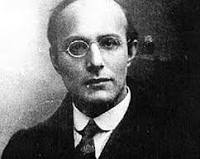With both statist and market-based models of governance having failed at a time of enormous challenges, especially #climatechange, where do we turn? Socialism remains a grand idea, but its transformational nature ensures that the struggle to achieve it would be lengthy, divisive and highly conflictual. Even then, the outcome of a struggle for socialism would remain uncertain – would the new model avoid the excesses of the old? And so many progressives turn to #socialdemocracy. But of course social democracy is in crisis too, discredited in many countries by its semi-conversion to neoliberalism. What is the best path forward to reclaim the earlier promise of social democracy in an age of widespread cynicism and withdrawal from politics?
A recent debate between Martin O’Neill and Neal Lawson on this subject is highly illuminating. Both are committed to building a future for the democratic left. Their implicit frame of reference is Europe. However, with the old distinction between developed/less developed, First World/Third World increasingly irrelevant, the debate is of broader significance. It indeed mirrors similar differences of opinion within the democratic left of the global south as well.
The debate begins with polarized positions, but what is particularly interesting is that the differences narrow as the exchange draws toward its end. O’Neill adheres to a more traditional statist/top-down approach in which social-democratic parties regain their self-confidence in pressing their vision. Lawson adopts a “post-materialist” conception that is essentially a society-centric, bottom-up and participatory model. But as the debate continues, the positions converge in what is close to a synthesis of the two outlooks. Interestingly, the recent experience of Podemas (Spain) and Syriza (Greece) enters into the discussion, as it should in any debate about the future of social democracy. (Whether the two parties should be understood as social democratic at all is an important question; regardless, these experiences are central to the future of the democratic left.) The debate concludes in a balanced view of the role of the state and society in any social-democratic experiment that is capable of regaining the commitment and enthusiasm of citizens and constructing a more egalitarian, sustainable and secure future.

